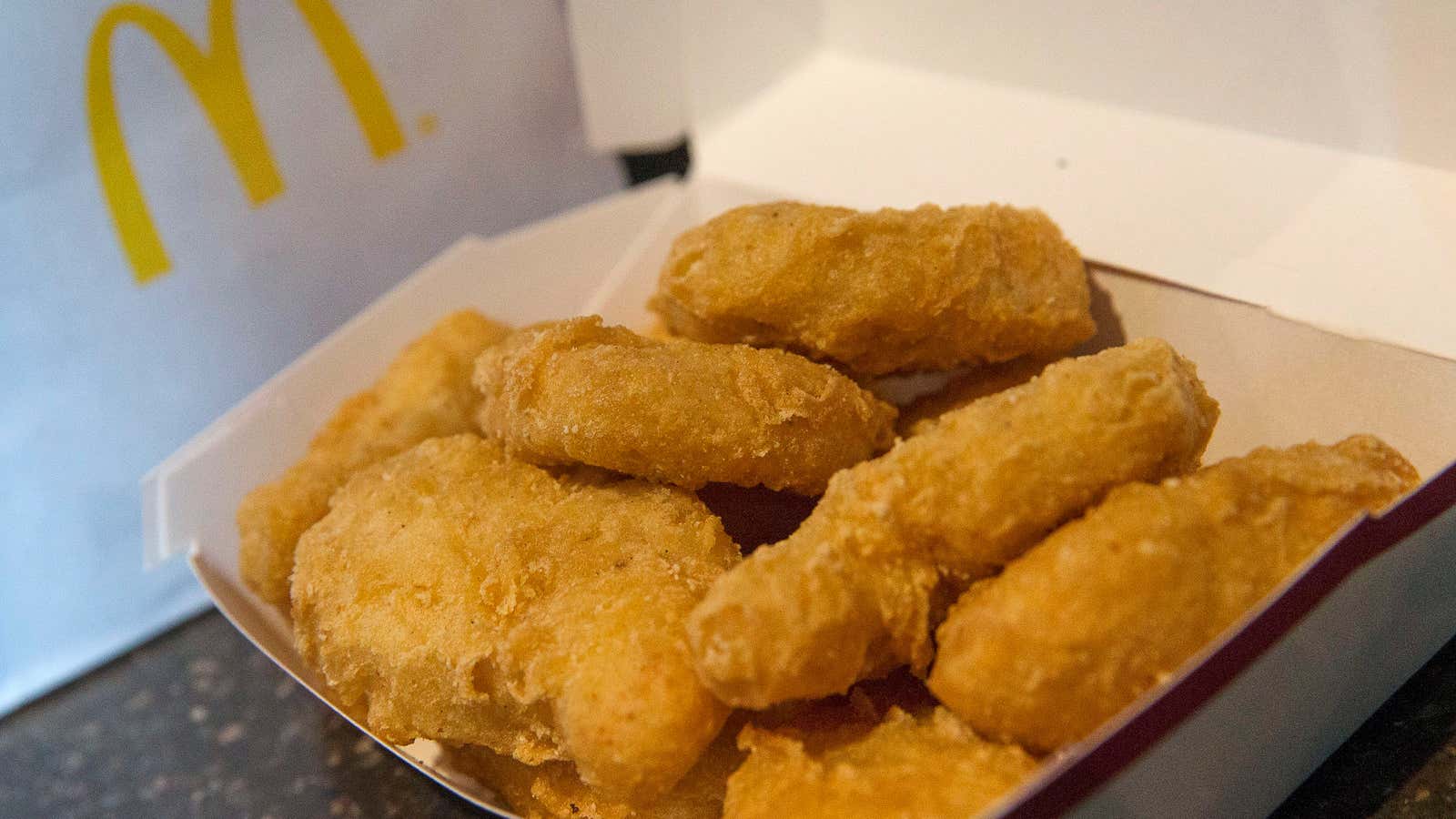McDonald’s is asking chicken suppliers to its US locations to phase out the use of antibiotics important to human medicine, addressing concerns that current practices (pdf) in animal husbandry increase the risk of dangerous, drug-resistant infections.
The company also released a separate set of guidelines (pdf) as to which antibiotics are and aren’t acceptable across its supply chain worldwide, based on World Health Organization recommendations. These guidelines, which cover all food animals, include some loopholes that permit the continued use of human antibiotics in livestock, but are substantially stronger than previous global policies.
The new policies mark the first major changes to the McDonald’s supply chain since the embattled company began a marketing push to sell consumers on the integrity of its ingredients, and come less than one week into the tenure of new CEO Steve Easterbook, who took over from Don Thompson on March 1.
The stricter US policy could be a testing ground for McDonald’s in other countries with falling sales. For instance, in Asia, sales have suffered amid concerns about food quality (paywall) and antibiotic use. (Asked whether the US standards will be rolled out elsewhere, a company spokesperson would say only that ”the US [policy] is a specific market policy that is supported by the global vision.”)
It’s a potentially significant move, as the company has around 14,000 stores in the US and gets about a third of its sales from there. But it’s difficult to tell how much of the company’s chicken supply will be affected by the changes, or how rigorously the standards will be enforced. Large suppliers like Tyson and Perdue have reduced the use of human antibiotics with the goal of eliminating their use in hatcheries, and Tyson says it will work with McDonald’s to eliminate the practice with adult chickens as well. Meanwhile, a Reuters investigation published in December found that antibiotics are still routinely used by large poultry producers, including Tyson.
Even if McDonald’s eliminates the use of human antibiotics in its chicken supply, it will still buy from producers that ”responsibly use” ionophores, antibiotics that aren’t used to treat humans. The justification for this, McDonald’s says, is that it keeps chickens healthier in general and reduces the need to use antibiotics important to humans. Chains like Chipotle and Panera don’t allow the use of ionophores by chicken suppliers.
Steve Roach, a senior analyst at the Keep Antibiotics Working campaign, which wants to end antibiotic overuse, says the large-scale use of ionophores presents potential problems. But the more pressing issue he’d like to see McDonald’s address, he says, is the large-scale use of human antibiotics in species other than chicken.
“When most feedlot cattle are getting critically important antibiotics in their feed for liver abscesses caused by their diet, that needs to be the area of focus,” Roach says.
